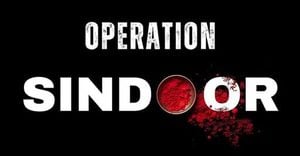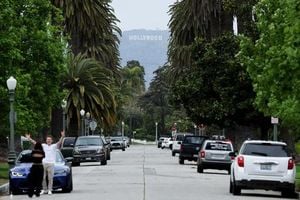Santiago Segura, the acclaimed Spanish filmmaker and comedian, has found himself at the center of controversy following the recent Goya Awards. The uproar revolves around the acceptance speech made by his production partner, María Luisa Gutiérrez, who dedicated her award for 'La infiltrada' to the victims of terrorism, sparking extensive debate on social media.
During the ceremonial event, Gutiérrez emphasized the importance of freedom of expression and the memory of victims affected by terrorism, asserting, "The democracy is based on freedom of expression.” Her remarks were met with backlash, where some critics labeled her speech as 'fascist' and linked it to far-right ideologies.
Santiago Segura, quick to defend his colleague, expressed bewilderment at the reaction to Gutiérrez’s words. “¿En qué tipo de país estamos viviendo actualmente para decir que ese discurso alguien lo pueda percibir como de ultraderecha?” he articulated during his appearance on the podcast of journalist Albert Castillón, voicing his concerns about the current cultural climate.
Further elaboration by Gutiérrez included her acknowledgment of the contributions made by security forces and groups like the Fundación Víctimas del Terrorismo, emphasizing, "The four producers want to share this award with the real infiltrator and with all those who risk their lives for the common good and for defending the principles of democracy." Her passionate plea to recognize historical memory was particularly poignant, as it challenged narratives surrounding terrorism and its aftermath.
Despite the accolades received by 'La infiltrada' topping the awards by winning alongside 'El 47', the criticism emerged especially from sectors of social media criticizing the film and Gutiérrez’s dedication remarks. Critics argued they simplified complex issues such as terrorism, and some even accused them of being opportunistic.
Segura reacted vehemently against these accusations of extremism directed at Gutiérrez. “Iros a cagar, iros a cagar,” he proclaimed, responding to online outrage. He continued to raise the alarm about the absurdity of labeling genuine expressions of support for terrorism victims as politically charged rhetoric.
This controversy has ignited significant discussions about the limits of free speech, particularly within artistic forums like the prestigious Goya Awards. Gutiérrez defended her choice to honor the victims within the framework of art, stressing, "The historical memory also applies to the recent history of this country," referencing the long-standing impact of groups like ETA.
The dynamic surrounding the awards highlights the tension between artistic expression and political correctness. Critics of Segura and Gutiérrez argue there should be sensitivity when discussing past atrocities; defenders propose their right to voice those memories without censorship should be unencumbered.
Further compounding the matter is political climate observance, as Pedro Sánchez—Spain's Prime Minister—was present during Gutiérrez's speech. The intersection of politics with artistic expression seems to be drawing battle lines not just over the content of the speech, but over who has the authority and right to discuss historical narratives.
Segura's defense of his colleague illuminates his brittle relationship with the current cultural milieu, where left-leaning perspectives frequently dominate artistic discussions. Characteristically known for his comedic exploits and family-oriented films, this shifting dynamic involves him confronting both the criticism and the shaping of cultural conversations.
Counting on the political backdrop of shifting alliances with groups associated with ETA, the historical portrayal of terrorism remains contentious. The public's reaction to Gutiérrez's remarks about the past and the resonance they carry under present politics warrants considerable reflection.
This entire incident serves as not only a commentary on freedom of expression but also as perhaps the latest chapter of the larger dialogue about the role of cultural events like the Goya Awards. With passions running high across various factions, the conversation surrounding artistic expression versus political sensibilities will surely continue.
The resulting discourse from the Goya Awards highlights the necessity for artists like Segura and Gutiérrez to navigate their creative narrative against the backdrop of public sentiment, censorship, and the historical narratives they seek to illuminate.



